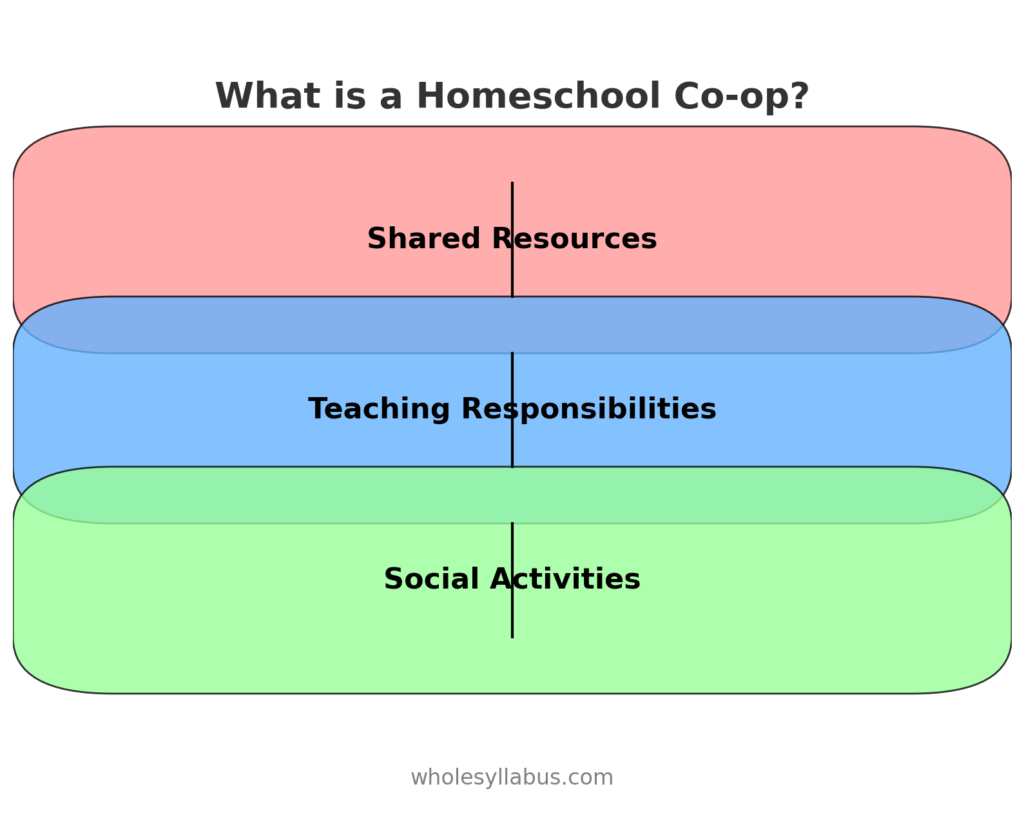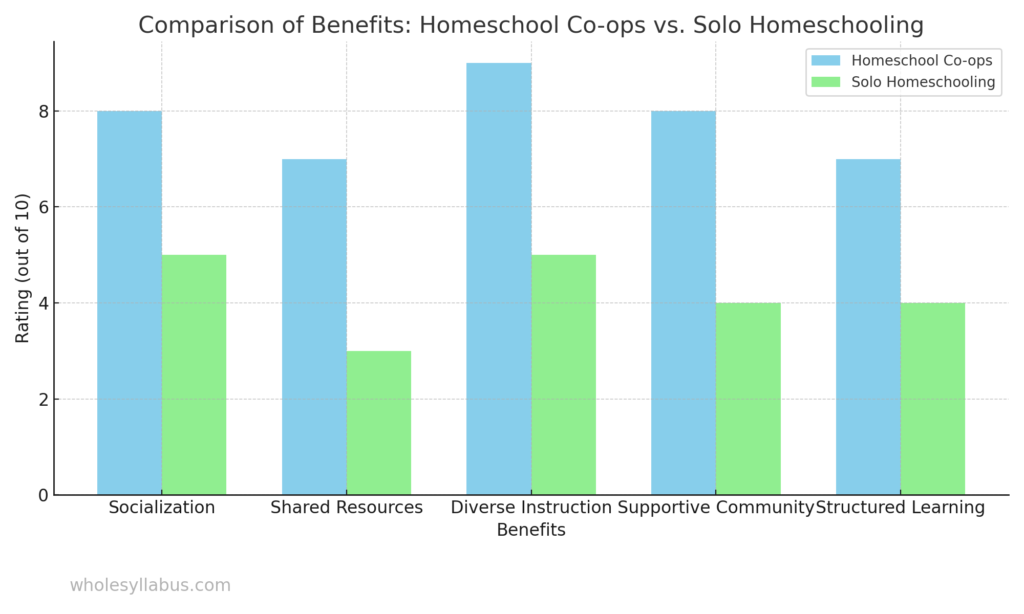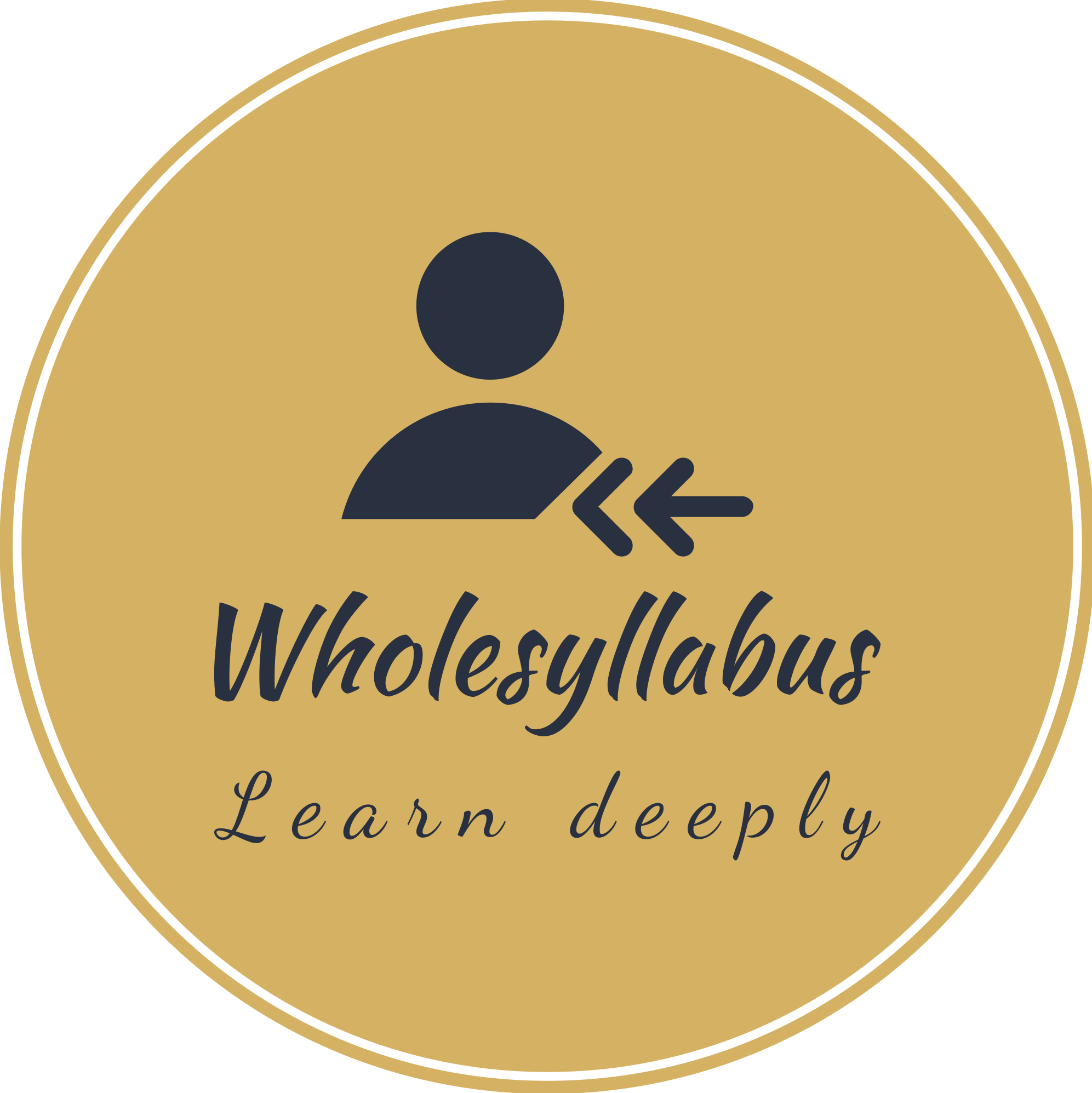Homeschooling offers a unique and flexible approach to education, but it can sometimes feel isolating for both parents and children. This is where a homeschool co-op, or cooperative, becomes invaluable.
In this article, we will explore what a homeschool co-op is, how to start one, the benefits it offers, costs and meeting frequencies, and much more. We’ll also cover legal requirements, finding local co-ops, and ideas for curriculum and activities, providing a comprehensive guide for anyone interested in joining or starting a homeschool co-op.
Strategy for Homeschooling an Autistic Child.
What is a Homeschool Co-op?
A homeschool co-op, or cooperative, is an organized group of homeschooling families who meet regularly to participate in group educational activities. These co-ops provide structured classes, socialization opportunities, and shared resources to enhance the homeschooling journey. Typically, members of a co-op share teaching responsibilities based on their expertise, enabling children to receive instruction in a variety of subjects from different educators.

How to Start a Homeschool Co-op
Now, if you are looking for answer of the question How Do I Start a Homeschool Co-op? Let’s jumped to the solution.
- Assess Interest and Gather Families: Begin by connecting with other homeschooling families in your community to gauge interest. Use local homeschooling groups, social media, and community boards to reach out.
- Establish Goals and Structure: Decide on the co-op’s mission, educational goals, and structure. Will it be a parent-led or professional-taught co-op? Determine roles, responsibilities, and decision-making processes.
- Plan Curriculum and Activities: Develop a curriculum that meets the educational needs of your group. Plan activities, classes, and events that align with your co-op’s goals.
- Logistics and Scheduling: Determine where and how often your co-op will meet. Arrange for meeting spaces, such as community centers, libraries, or member homes.
- Launch and Adapt: Start with a pilot phase to test the co-op’s structure and activities. Gather feedback and make necessary adjustments.
Benefits of a Homeschool Co-op
There are the Benefits of a Homeschool Co-op
- Enhanced Socialization: Children can interact with peers regularly, developing social skills and friendships.
- Shared Resources: Families can pool educational materials and resources, reducing costs and expanding learning opportunities.
- Diverse Instruction: Different parents or hired teachers bring varied expertise, providing a richer educational experience.
- Supportive Community: Parents gain a support network for advice, encouragement, and shared responsibilities.
- Structured Learning: Co-ops often offer structured classes and schedules, adding variety to the homeschooling routine.

Costs of Homeschool Co-ops
Now, there can your next queries- Are Homeschool Co-ops Free?
The cost of joining a homeschool co-op can vary widely depending on the structure and offerings of the co-op. Here are examples of both free and paid co-ops, along with a brief overview and recent costs:
Free Homeschool Co-ops
- Classical Conversations: While some communities may have fees, there are volunteer-led groups that might offer free participation. These co-ops typically involve parents taking turns teaching and organizing activities, minimizing costs.
- Homeschool Support Groups: Many local homeschool support groups operate as co-ops and are free or have very low membership fees. These groups often meet in public spaces like libraries or community centers and focus on socialization and shared learning experiences.
- Charlotte Mason Co-ops: Often volunteer-run, these co-ops focus on the Charlotte Mason method, which emphasizes nature study, art, and literature. Parents contribute their time and resources, keeping costs low.
Paid Homeschool Co-ops
- Classical Conversations (Paid Communities): In addition to free groups, Classical Conversations also offers paid communities with structured programs and professional tutors. Costs can range from $300 to $500 per child per year, plus additional fees for materials and testing.
- Heartwood Charter School: This co-op charges tuition based on the number of classes and resources used. Costs can range from $200 to $1,000 per semester depending on the program and location.
- Enrichment Co-ops: These co-ops offer specialized classes such as science labs, music, and art taught by qualified instructors. Fees vary but typically range from $50 to $200 per class per semester.
Comparison Chart: Free vs. Paid Homeschool Co-ops
| Feature | Free Homeschool Co-ops | Paid Homeschool Co-ops |
|---|---|---|
| Cost | Minimal or no fees | Ranges from $50 to over $1,000 per semester |
| Teaching Structure | Parent-led, volunteer-based | Professional instructors or hired tutors |
| Types of Classes | Basic subjects, social activities, field trips | Specialized classes (science labs, arts, music, foreign languages) |
| Materials & Supplies | Parents usually provide materials | Fees often include materials; additional costs for supplies |
| Meeting Locations | Public spaces (libraries, community centers, homes) | Dedicated facilities or rented spaces |
| Flexibility | Highly flexible, schedule varies by group | More structured schedule |
| Social Opportunities | Strong focus on socialization and community building | Includes socialization but more academically focused |
| Example Co-ops | Classical Conversations (free groups), Charlotte Mason Co-ops | Classical Conversations (paid groups), Heartwood Charter School |
Factors Affecting Costs
- Location: Urban areas might have higher costs due to facility rentals and higher demand.
- Structure: Co-ops hiring professional teachers or providing specialized equipment will have higher fees.
- Materials: Additional costs may include books, lab supplies, or field trip expenses.
When considering a homeschool co-op, it’s important to ask about the specific costs involved and understand what is included in the fees. This will help you choose a co-op that fits both your educational needs and budget.
Homeschool Hours by Age Chart: Guide For Parents
How Often Do Homeschool Co-ops Meet?
Homeschool co-ops vary in how often they meet, depending on the needs and preferences of the participating families. Typically, homeschool co-ops meet once a week or bi-weekly, but some may meet more or less frequently.
For instance, some co-ops, particularly those focused on specific subjects or activities, might meet once a month, while more structured co-ops could meet multiple times a week, similar to a traditional school schedule. The frequency of meetings can also depend on the size of the co-op and the goals of the group. For example, academic-focused co-ops might have more frequent sessions to cover a curriculum comprehensively, while those emphasizing social activities might meet less often.
It’s important to note that the meeting schedule can be a significant factor in deciding whether a particular co-op fits your family’s needs. Some families prefer the structure of regular meetings, while others might opt for more flexibility to accommodate other activities and learning opportunities.
Can Homeschoolers Participate in Public School Activities?
Yes, in many areas, homeschoolers are allowed to participate in public school activities such as sports teams, music programs, and extracurricular clubs. The availability of these opportunities varies by location, so it’s essential to check local school district policies. Participation often requires compliance with certain eligibility criteria, such as enrollment part-time in the public school or adhering to specific regulations.
Finding Local Homeschool Co-ops
To find a homeschool co-op near you, use online resources and community connections. Websites like Homeschool World and local homeschooling Facebook groups can be valuable tools. Additionally, community centers, libraries, and local churches may have information on co-ops in your area. Networking with other homeschooling families at events or through local support groups can also help you discover nearby co-ops.
Homeschool Co-op Curriculum and Ideas
Homeschool Co-op Curriculum Homeschool Co-op Ideas
Homeschool co-op curricula can range from structured academic programs to more flexible, interest-based learning approaches. Common subjects include core academics like math, science, language arts, and history, as well as enrichment classes such as art, music, and physical education. Popular ideas for co-op activities include:
- Science Experiments: Hands-on learning with group projects and experiments.
- Art Projects: Collaborative art activities that encourage creativity.
- Field Trips: Educational visits to museums, nature centers, and historical sites.
- Group Reading: Shared reading sessions and book clubs.
- Physical Activities: Organized sports, dance classes, and outdoor play.
- Khan Academy: Provides free online lessons and practice exercises for math and other subjects.
- ReadWorks: Offers free reading comprehension passages and lessons for K-12.
- Mystery Science: Provides engaging science lessons and experiments for elementary grades.
- PBS LearningMedia: Offers multimedia resources, lesson plans, and interactive activities across subjects.
- Code.org: Provides free coding tutorials and activities suitable for all ages.
- Art for Kids Hub: Offers art tutorials and drawing lessons for kids of all ages.
- PE Central: Provides lesson plans and resources for physical education activities.
- Science Buddies: Offers science fair project ideas, experiments, and resources.
- FieldTripZoom: Provides virtual field trip options for educational exploration.
Khan Academy Homeschool Review: Khan vs. Adventure and Others
Scheduling and Classes
Homeschool Co-op Schedule Homeschool Co-op Classes
A typical homeschool co-op schedule might include meeting once or twice a week, with classes spanning several hours each day. Classes can cover a wide range of subjects, including core academic subjects (math, science, language arts), and electives (art, music, physical education). The schedule may also incorporate time for social activities, group projects, and special events.
Age-Specific Co-ops
Homeschool Co-op for Preschoolers Homeschool Co-op for High School
Homeschool co-ops can be tailored to different age groups to meet their specific developmental needs:
- Preschool Co-ops: Focus on play-based learning, socialization, and early childhood education activities such as storytelling, arts and crafts, and basic math and literacy skills.
- High School Co-ops: Offer more advanced academic courses, college preparation, and career exploration activities. These co-ops may also provide opportunities for extracurricular activities, standardized test preparation, and advanced placement classes.
Legal Requirements and Issues
Homeschool Co-op Legal Requirements
Legal requirements for homeschool co-ops vary by state and region. It’s crucial to understand your local homeschooling laws, including reporting requirements and curriculum standards. Potential legal issues include liability concerns, adherence to health and safety regulations, and ensuring compliance with educational laws. Consulting with legal experts or local homeschooling organizations can help ensure your co-op operates within legal boundaries.
Support and Community
Homeschooling Support Groups Homeschooling Communities
Homeschooling support groups and communities are vital for the success of homeschool co-ops. They provide resources, advice, and encouragement to homeschooling families. These groups can help you navigate challenges, share best practices, and find support networks. Joining these communities can also offer opportunities for collaboration, shared activities, and mutual support. You will also ask them how your kid can be benefited from playing with toys.
Field Trips and Lesson Plans
Homeschool Co-op Field Trips Homeschool Co-op Lesson Plans
Field trips are an excellent way for homeschool co-ops to supplement their curriculum. Popular field trip destinations include museums, nature reserves, science centers, and historical sites. Lesson plans can be collaboratively developed and shared among co-op members, tailored to group interests and educational goals. This collaborative approach ensures diverse and engaging learning experiences.
Socialization and Group Activities
Homeschool Group Activities Homeschool Socialization Opportunities
Socialization opportunities and group activities are essential aspects of homeschool co-ops. These activities allow children to develop social skills, make friends, and participate in collaborative projects. Common group activities include:
- Cooperative Games: Team-building activities and games.
- Cultural Events: Celebrations of various cultural holidays and traditions.
- Community Service: Volunteer projects that teach social responsibility.
- Group Projects: Collaborative learning projects across different subjects.
- Social Gatherings: Regular meet-ups, parties, and picnics to foster community spirit.
Homeschool co-ops offer numerous benefits, including educational enrichment and socialization opportunities. By joining a co-op, families can become part of supportive homeschooling communities and access valuable homeschooling resources. If you’re considering enhancing your homeschooling experience, explore local co-ops, connect with like-minded families, and embrace the collaborative spirit of homeschool co-ops.
READ Secular Homeschool Curriculum Resources.

Nawab is an experienced educator with a decade of teaching across preschool to K-12 levels. Holding both a graduate degree and a diploma in elementary education, he is passionate about fostering learning environments that inspire young minds. In addition to his teaching career, Nawab has been actively blogging and writing content for the past four years, sharing insights and resources for educators and parents alike.

6 thoughts on “Unlocking the Benefits of Homeschool Co-ops: A Parent’s Guide”